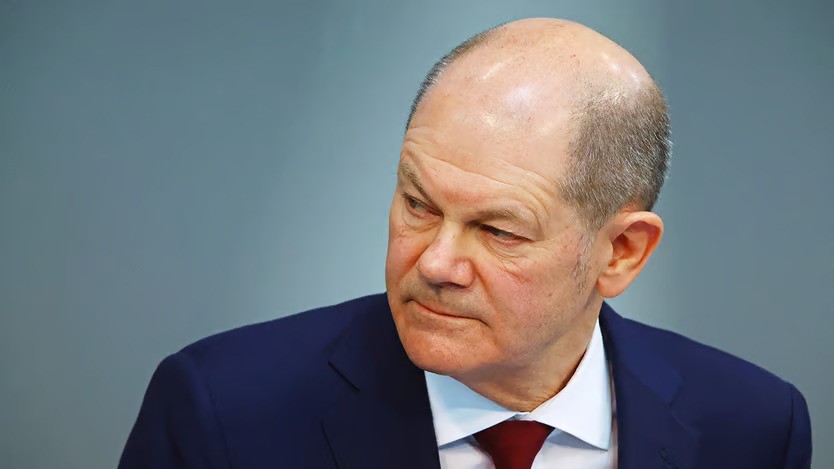German Chancellor Olaf Scholz got a reprieve after a much needed win for his Social Democratic Party (SPD) in the eastern state of Brandenburg 22 September. However, that is hardly good news for his three-party coalition which is facing an existential crisis following a sensational rise of the far-right neo-Nazi party, Alternative for Germany (AfD). State elections in Germany do not affect the government in Berlin directly, but they are often seen as a barometer of the national mood and a snapshot of the government’s popularity. The election in the state of Brandenburg was the third and final one in a state that was once part of East Germany before the country votes for a new chancellor and federal government in a year from now.
Scholz’s party won 31 per cent of the votes, and the AfD got just above 29 per cent, according to official results. Nearly 45 per cent of voters chose extremist parties and the election had the highest voter turnout in the state, 73 per cent, since reunification. These statistics reflect the people’s mood against the ruling coalition of the three parties of SPD, Free Democratic Party (FDP) and Green party.
The surprise win for the Social Democrats in Brandenburg is being viewed as the result of the popular governor’s intense campaigning and also strategic voting against the AfD. The governor belonging to the SPD, Dietmar Woidke, succinctly summed up the outcome by asserting that their goal from the outset was to prevent the state from being captured by the AfD. Earlier this month, two other eastern states, Saxony and Thuringia, had held their elections and the far-right party dominated. The AfD won around 30 per cent in all three states. In Brandenburg, the Social Democrats still edged out the AfD, but in Thuringia the AfD got 32.8 per cent.
The implications of the victory in Brandenburg are not lost on Woidke who realises that if an openly far-right extreme party can win around 30 per cent of the votes in his state, then it is a wake-up call for all democrats who “stand for freedom, openness and tolerance.”
Both the AfD and the new far-left party, Bundnis Sahra Wagenknecht, campaigned on controlling immigration which many Germans perceive as a problem and against military support for Ukraine.
As such, the narrow victory over the AfD in Brandenburg is already overshadowed by debate within the federal three-party coalition over how — and for how long — the government will survive. The coalition will have to reinvent itself in the next months with major policy resolutions on key issues ranging from migration to the economy. While the SPD was able to end a string of election defeats in the Brandenburg vote, the two other parties — the Greens and the FDP — continued their streak of dismal losses. The Greens crashed out of the Brandenburg state parliament, winning just around 4 per cent, a drop of nearly 7 percentage points from the last election and below the 5 per cent threshold needed to gain parliamentary seats. The FDP fared the worst, winning less than 1 per cent of the vote share.
These results, followed by poor outcomes in state elections earlier this month and the European election in June, put the coalition parties — and particularly the FDP — in an existential crisis that is likely to make governing inside the divided coalition even harder. As a federal election is scheduled to be held in a year, the ruling parties are hard put to bury their differences and try to consolidate their bases which at the moment seems to be an uphill task.
The steady rise of the far-right has so much unnerved the FDP that many of its leaders are openly questioning whether it would be better to pull the plug on the coalition in a last-ditch effort to revive their party’s fortunes — a move that could lead to an early election.
Experts say the coalition’s future now depends on whether it can move to curb the influx of asylum seekers, stimulate economic growth and reach a budget agreement in the coming months.
Time is running out and the coalition government will have to act fast if it wants to seriously take on the AfD. The frictions within the coalition make its prospect appear bleak at the moment unless all anti-Nazi forces close rank in the coming elections and win back the trust of the people. At the moment, their credibility has hit the
rock bottom.
